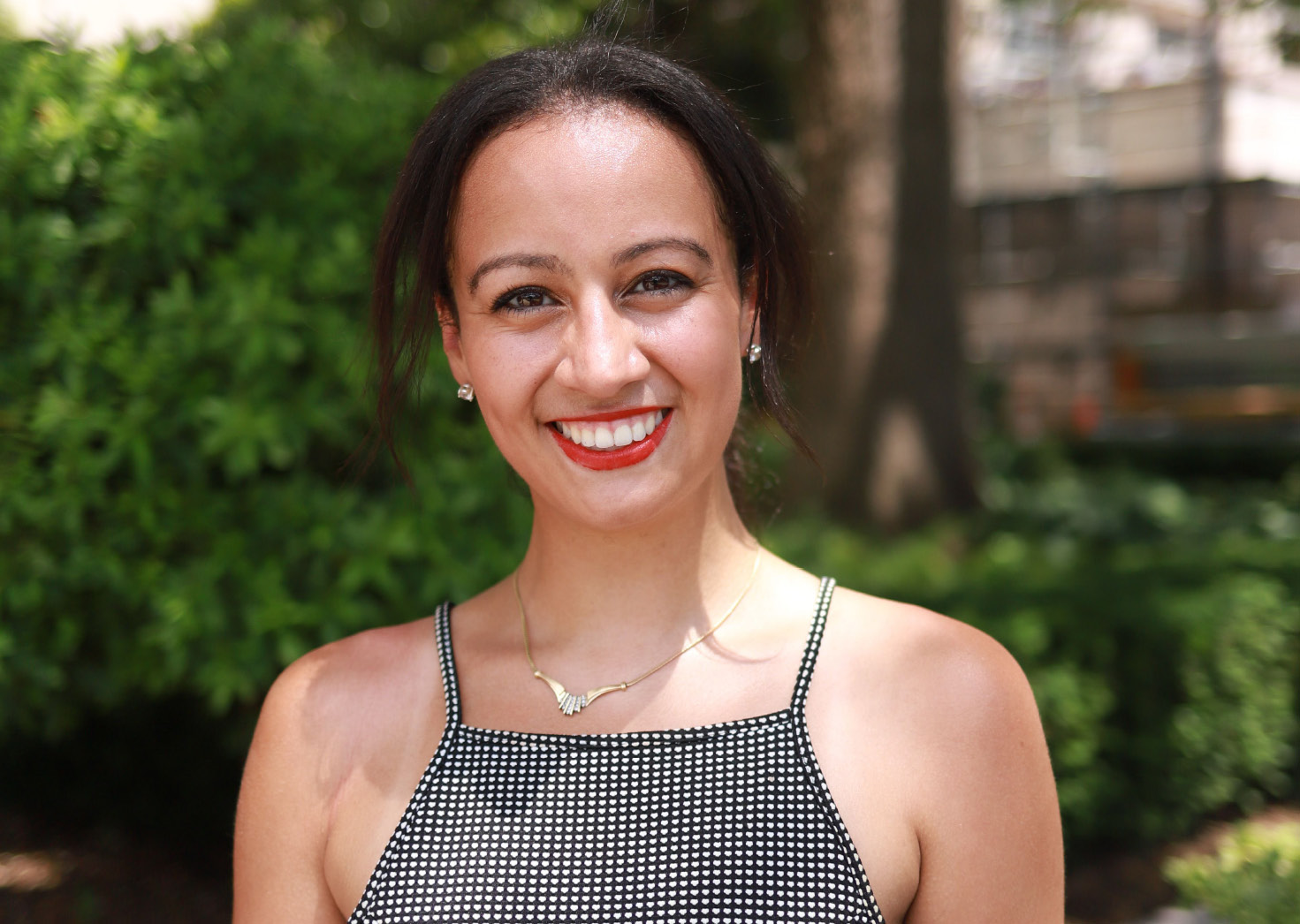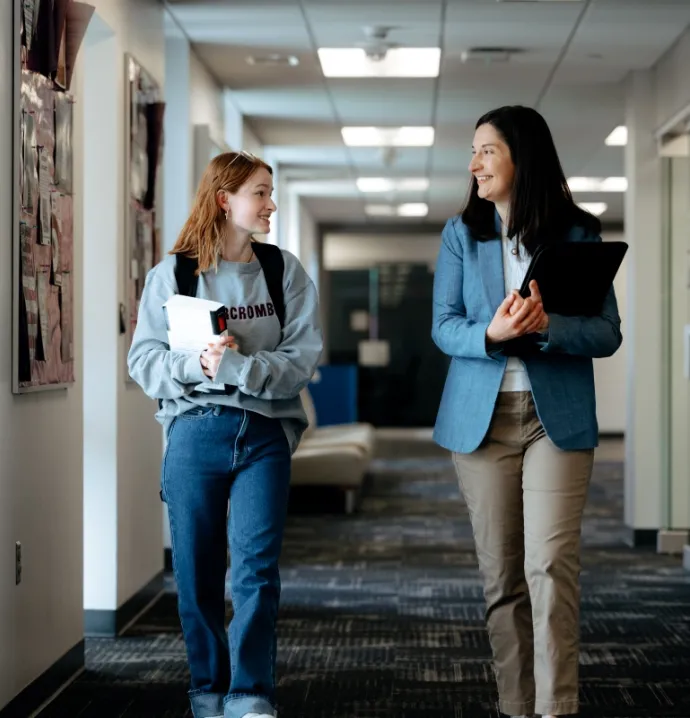Shaping policy with purpose
Shaping policy with purpose
 Growing up in rural Wisconsin as a woman of color, and raised by a single mother, Tatiana Rice, ’16, rarely saw people who looked like her.
Growing up in rural Wisconsin as a woman of color, and raised by a single mother, Tatiana Rice, ’16, rarely saw people who looked like her.
These experiences ultimately shaped who Rice is: hard-working, interested in learning from different perspectives, grounded in justice and destined to make a change.
Today, as director of AI legislation at the Future of Privacy Forum in Washington, D.C., she brings all those facets of her identity to the table, influencing laws on how and why AI is used.
Rice works closely with lawmakers and industry leaders on AI policies that balance technological advancement with civil rights and liberties. In her role, Tatiana has served on the Colorado AI Task Force, working on one of the nation’s first AI laws, and testified to numerous legislative bodies on Capitol Hill and the states.
But the best part of Rice’s role is doing work that has a real impact — one she and others can see.
“I work with really smart but really kind people who are trying to do the right thing,” she says.
She especially enjoys working at the state level. The federal government sometimes seems like theater, Rice shares, but local officials are closer to their constituents and more likely to work in a bipartisan manner to pass meaningful legislation. When it comes to emerging, dominant technologies like AI, this work is incredibly important.
“We as a society are entering a new digital age,” Rice says. “A lot of folks say we’re in the second digital civil rights era where bias can get implemented into an AI system that exacerbates that issue.”
If the data that trains AI only represents a white male population, it will miss key patterns or applications for people of color or women.
“There’s a possibility that we can take the human bias out and create a better society that’s actually more fair, as long as we’re using AI systems in an ethical way and properly testing them."
UNI shaped Rice’s ability to fight for what’s fair and view things from different perspectives, where she studied criminology and pre-law with minors in political science and history.
Because the university is medium sized, she felt she could experiment more with different aspects of who she is.
“I was not only navigating my mixed-race identity but also balancing life as a student-athlete, a student government participant, and a student,” Rice says. “In doing so, I found myself constantly engaging with people from all walks of life.”
Even now, she values the skills she built during that time.
Rice was recruited to UNI in 2012 for the track team but quickly found a second home in academics. Through her criminology courses, she came to understand that issues within the criminal justice system stem from the way the law was created. To make change, she realized, she’d need to become either a lawyer or a legislator.
Then, after taking a career aptitude assessment in a course taught by Professor of Criminology and Criminal Justice Gayle Rhineberger, "lawyer" topped the list.
It felt like fate, even though Rice didn’t know any lawyers growing up in rural Wisconsin and had never considered the profession. She continued exploring the career through her coursework and extracurriculars, including student government and the UNI Speech and Debate Team, which helped her hone her critical thinking skills. That experience, in particular, was formative to her confidence and understanding of the world.
After graduating in 2016, Rice applied to law school — a process that felt like “shooting in the dark.” She ultimately chose the school that offered the most opportunities: Washington University School of Law. There, she worked as a law clerk for both the Department of Justice and the U.S. District Court for the Southern District of Illinois.
Her career officially launched after law school with a law firm job, where she worked on data privacy compliance and litigation. Two years later, she transitioned her legal experience into the policy space. Then, the pandemic and social unrest of 2020 happened.
“That made me take a step back and evaluate my life and the kind of fulfillment I was getting from my job and what I really wanted out of my career,” Rice says.
Since 2021, Rice has been at the Future of Privacy Forum, starting first as policy counsel and working her way up to her current position as director of AI Legislation.
Rice’s passion for fairness extended beyond policy though. In the fall of 2020, she launched an organization to help Black artists gain recognition. Supporting the Black community in this way felt meaningful, especially as she started collecting artwork herself. She quickly learned the space and got to know notable artists in the D.C. area. Though the organization has since closed, Rice still holds tight to her passion for art and now owns 10 pieces of her own.
According to Rhineberger, Rice exemplifies what UNI can do for students — helping them create their own undergraduate experience, receive one-on-one advising focused on career plans, develop problem-solving skills and more.
“Tatiana was a fantastic UNI Honors student and athlete,” she says. “She worked hard and was dedicated to both her academics and athletics. As her Honors thesis advisor, professor and program advisor, Tatiana was a dream student to work with. She was dedicated and self-motivated to do her best — and she excelled.”




